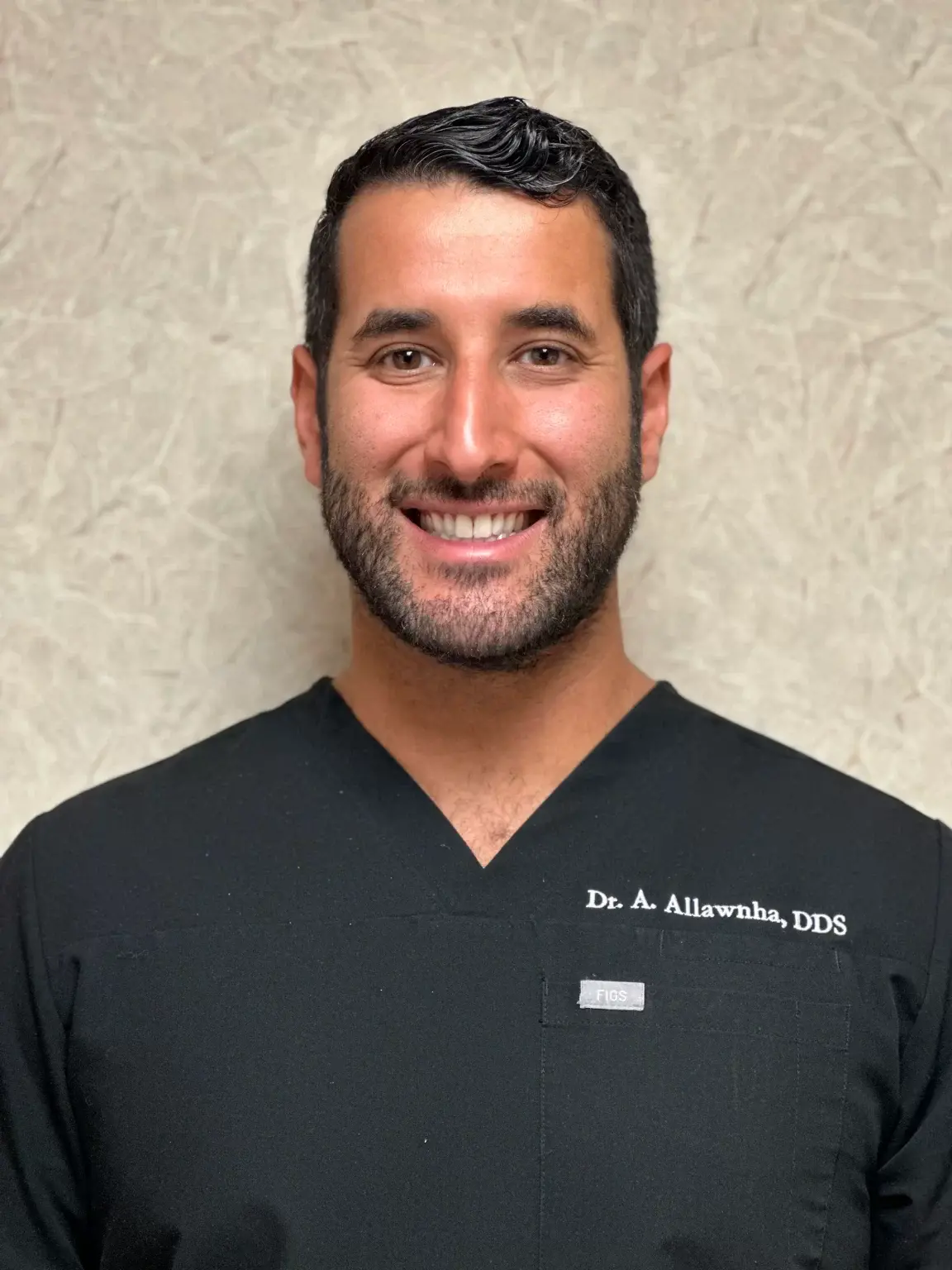Periodontal disease affects the gums and bones supporting the teeth, causing infections and inflammation. Gums first swell and bleed in the earliest stages of gum disease called gingivitis. Leaving it untreated allows the disease to progress to periodontitis, causing gums to pull away from the tooth, bone loss, and loose or missing teeth.
Periodontitis is a disease that mainly affects adults. According to the Centers for Disease Control and Prevention (CDC), nearly half of the adults aged 30 and over (47.2%) suffer from periodontal disease, which becomes more prevalent with age. It’s one of the biggest threats to dental health, along with tooth decay.
Let’s learn more about the causes and risk factors of periodontal disease, treatment, and how you can prevent it.
What are the causes of periodontal disease?
Bacterial infections in the mouth can lead to inflammation of the tooth’s surrounding tissue and result in periodontal disease. Leaving bacteria to remain on your teeth allows them to form plaque, which hardens into tartar. It spreads beneath the gum line, making it difficult to clean; only a dental professional can remove it and halt the progression of periodontal disease.
It’s important to understand that periodontal disease is a complex condition affected by a combination of factors. Some risk factors of periodontal disease include:
Hormonal Changes
Hormonal changes during puberty, pregnancy, and menopause make women more susceptible to periodontal disease, inflammation, and infection.
Medications
Some medications can turn the mouth dry, leading to an increase in bacterial growth and plaque buildup.
Illnesses
Certain medical conditions, such as diabetes, can make it more difficult for the body to fight off infections, including gum disease.
Genetics
Some people may be genetically predisposed to developing periodontal disease, giving them a higher risk of developing gum problems.
Stress
Chronic stress can weaken the immune system, making it more difficult for the body to fight off infections, including gum disease. Stress can also cause changes in hormones and behavior, such as neglecting oral hygiene practices, which can contribute to periodontal disease.
Poor Oral Hygiene
Neglecting to brush and floss daily can lead to plaque and tartar buildup, which can cause gum disease.
Tobacco Use
Smoking and using other forms of tobacco can increase the risk of developing periodontal disease. Tobacco use can cause irritation and dryness in the mouth, making it easier for bacteria to grow and plaque to build up.
Symptoms of Periodontal Disease
Healthy gums are pale pink and fit tightly around teeth. Periodontal disease symptoms to watch out for include:
- Puffy or swollen gums
- Dusky red, bright red, or purplish gums
- Tender or bleeding gums
- Pink-tinged toothbrush after brushing
- Receding gums, making your teeth look longer than normal
- Blood when brushing or flossing your teeth
- Loose teeth or loss of teeth
- Bad breath
- Pus in the middle of your teeth and gums
- Painful chewing
- New spaces developing between your teeth
- Changes in how your teeth fit together when you bite
How To Treat Periodontal Disease
The treatment of periodontal disease involves removing plaque and bacterial buildup on teeth and gums.
Oral Hygiene Practices
Your dental team will help you reduce the bacteria in your mouth by properly cleaning teeth and gums. Most dental offices practice preventive dental care, where they advice on the correct use of toothbrushes and floss and suggest other oral hygiene products like mouthwash or water pick.
Here are some tips to follow to maintain your dental health:
- Brush teeth twice a day with fluoride toothpaste.
- Floss daily to eliminate plaque.
- Visit the dentist at least twice a year for professional cleaning.
- Avoid smoking or chewing tobacco.
Professional Dental Cleaning
Your dentist will clean your teeth and roots to remove plaque and tartar buildup, polish your teeth, and apply fluoride. Deep cleaning through scaling and root planing may be necessary if you have developed periodontal pockets to help promote healing. This method involves scraping off tartar and smoothing rough spots on tooth roots where bacteria tend to accumulate.
Antibiotics
Your dentist may prescribe antibiotics as a mouthwash, gel, tablet, or capsule for persistent gum infections that don’t respond to cleanings.
Regular Follow-up Appointments
Your dentist will schedule follow-up appointments with you a few weeks after treatment and then every three to six months to evaluate your progress. If pockets persist, they may consider surgical treatment options.
Surgery
Your dentist may suggest flap surgery if brushing and flossing cannot reach areas with persistent inflammation. It will help remove deposits beneath gums and reduce pocket depth. During the procedure, they will lift away the gums from the teeth and roots to remove plaque, tartar, and bacteria. They will reposition and suture the gums back once they’re done.
Your dentist may also consider bone grafting, which regenerates lost bone tissue in the jaw. It is often performed together with flap surgery if the periodontal disease has resulted in significant bone loss. The bone graft material, synthetic or natural, is placed into the area where the bone is missing, promoting new bone growth and stabilizing the teeth.
How To Prevent Periodontal Disease
Periodontal disease is a highly preventable condition; these easy steps will keep your teeth and gums safe.
Practice good oral hygiene.
Brushing your teeth twice a day with fluoride toothpaste helps remove plaque and prevent harmful bacteria buildup in the mouth. Flossing at least once a day helps remove plaque and food particles in areas between teeth that a toothbrush cannot reach.
Consider rinsing with an antiseptic mouthwash. It will help kill bacteria and freshen your breath.
Eat a healthy diet.
A high-sugar and carbohydrate diet increases the risk of plaque buildup and tooth decay. Eating a well-balanced diet low in sugar and rich in nutrients helps maintain healthy gums and teeth.
Go for regular dental check-ups.
Regular dental check-ups and cleanings can help detect and treat periodontal disease in its early stages. Your dentist can also provide professional cleanings to remove plaque and tartar buildup.
Quit tobacco products.
Smoking or using tobacco products can increase the risk of gum disease and other oral health problems because it slows healing. Quitting smoking or tobacco use can help reduce the risk of gum disease.
Manage underlying conditions.
Chronic conditions such as diabetes increase the risk of developing gum disease. Regular monitoring and effective management of these conditions with the help of your medical provider and dentist will help maintain your oral health.
Manage your stress.
Chronic stress negatively impacts overall health, including oral health. Managing stress through exercise, relaxation techniques, or other methods can help maintain healthy gums and teeth.
Key Takeaway
Periodontal disease is a serious condition common in adults that can lead to tooth loss. But it is easy to prevent. Therefore, it is important to practice good oral hygiene habits and visit the dentist regularly for check-ups and professional cleanings to prevent gum disease and maintain good dental health.
Keep your teeth and gums healthy with Century Dental.
Treating periodontal disease will be a breeze with the help of dentists. Our dentists near South Pasadena, FL, are well-equipped to treat gum disease and answer your questions about periodontal disease. They also perform preventive treatments like professional cleaning to help keep your teeth and gums safe.
Choose Century Dental for all your oral health needs. Contact us today.





